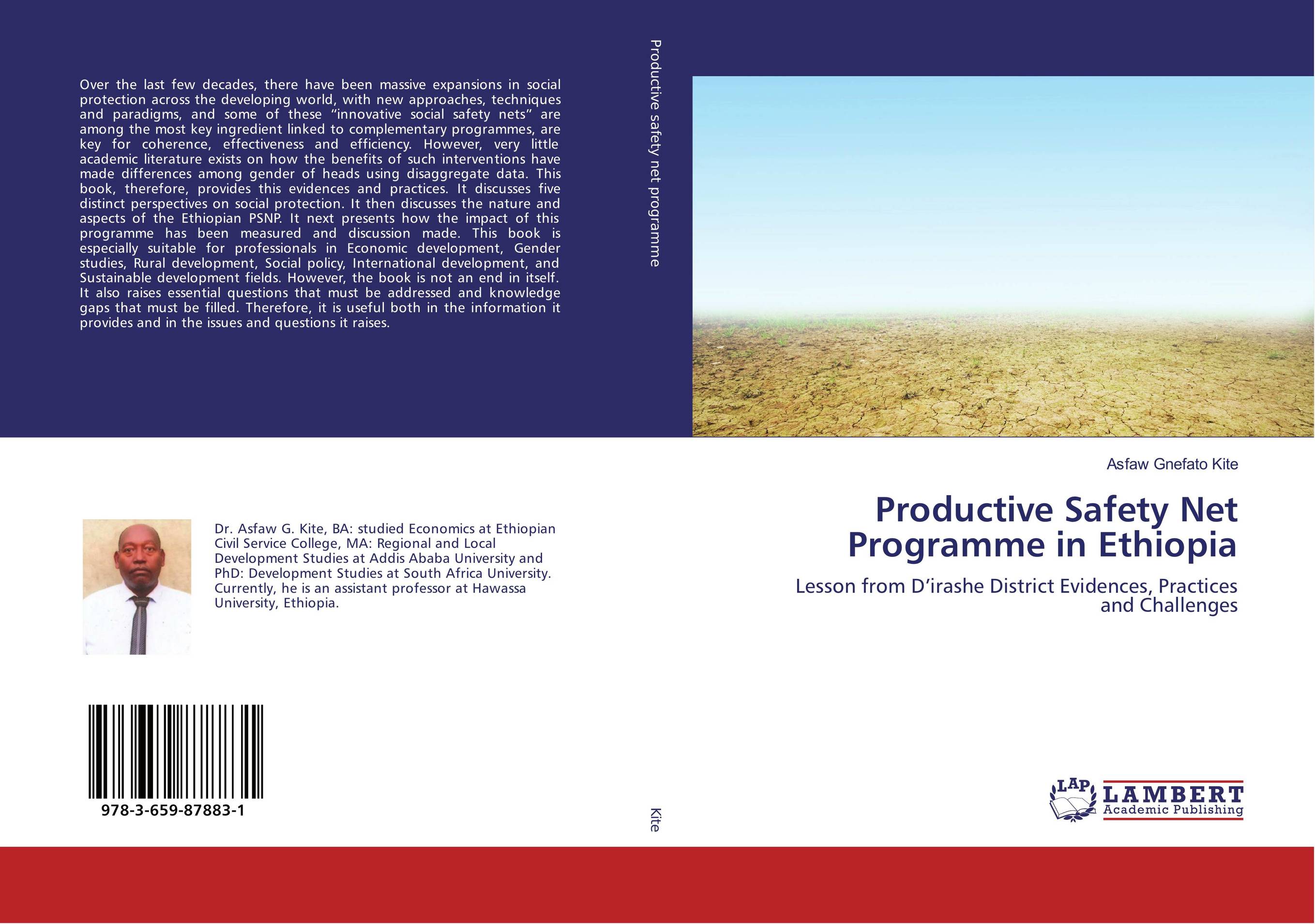| Поиск по каталогу |
|
(строгое соответствие)
|
- Профессиональная
- Научно-популярная
- Художественная
- Публицистика
- Детская
- Искусство
- Хобби, семья, дом
- Спорт
- Путеводители
- Блокноты, тетради, открытки
Productive Safety Net Programme in Ethiopia. Lesson from D’irashe District Evidences, Practices and Challenges

В наличии
| Местонахождение: Алматы | Состояние экземпляра: новый |

Бумажная
версия
версия
Автор: Asfaw Gnefato Kite
ISBN: 9783659878831
Год издания: 2017
Формат книги: 60×90/16 (145×215 мм)
Количество страниц: 292
Издательство: LAP LAMBERT Academic Publishing
Цена: 48389 тг
Положить в корзину
| Способы доставки в город Алматы * комплектация (срок до отгрузки) не более 2 рабочих дней |
| Самовывоз из города Алматы (пункты самовывоза партнёра CDEK) |
| Курьерская доставка CDEK из города Москва |
| Доставка Почтой России из города Москва |
Аннотация: Over the last few decades, there have been massive expansions in social protection across the developing world, with new approaches, techniques and paradigms, and some of these “innovative social safety nets” are among the most key ingredient linked to complementary programmes, are key for coherence, effectiveness and efficiency. However, very little academic literature exists on how the benefits of such interventions have made differences among gender of heads using disaggregate data. This book, therefore, provides this evidences and practices. It discusses five distinct perspectives on social protection. It then discusses the nature and aspects of the Ethiopian PSNP. It next presents how the impact of this programme has been measured and discussion made. This book is especially suitable for professionals in Economic development, Gender studies, Rural development, Social policy, International development, and Sustainable development fields. However, the book is not an end in itself. It also raises essential questions that must be addressed and knowledge gaps that must be filled. Therefore, it is useful both in the information it provides and in the issues and questions it raises.
Ключевые слова: Food Security, Household, Impact Analysis, livelihood, Propensity Score Matching, Asset holding, Female-headed household, Male-headed household, Productive safety net programme



